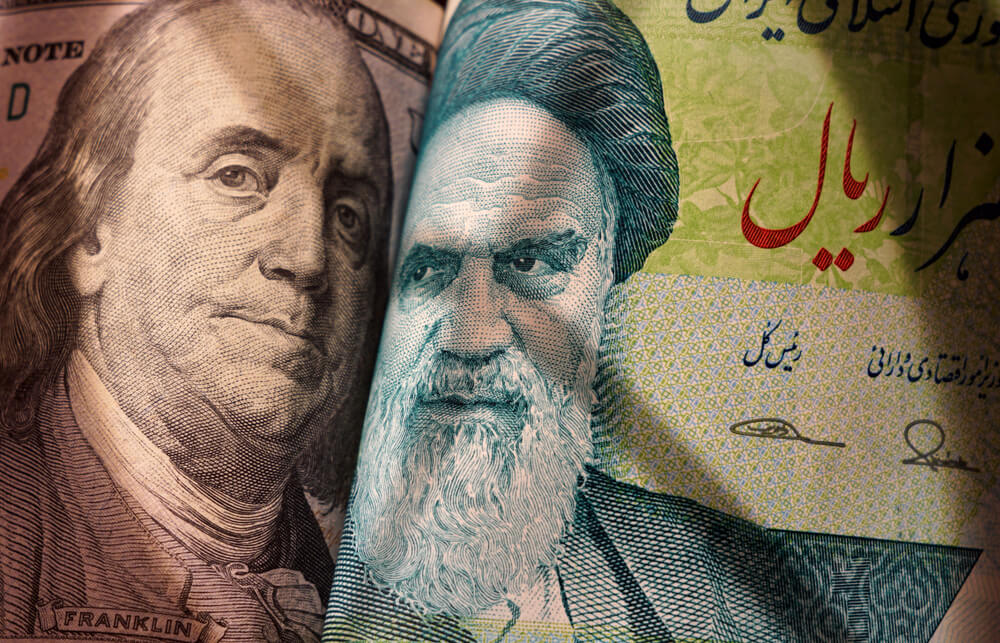
Terrorist attack in Jerusalem: the US double standard has become a “triple standard” but apparently, no one believes in its sincerity anymore
In mid-August, the US State Department condemned the terrorist attack in Jerusalem’s Old City, confirming that at least five American citizens have been injured when a bus carrying passengers was sprayed with bullets. What would seem strange about that? Firstly, it was really a terrorist attack that killed innocent people. Secondly, in any event related to the Israeli-Palestinian conflict, the US has always sided with Israel, totally ignoring that state’s long-term responsibility for this ancient and tragic confrontation. This time, the terrorist turned out to be a 26-year-old Arab, named Amir Sidaoui. This offered for the US excellent propaganda options. If you recall the classic novel written by J. R. R. Tolkien “The Lord of the Rings”, the Palestinians were always presented by Americans as vile orcs and the Israelis as noble elves and this fitted perfectly into the usual model of “double standards” so peculiar to the United States.
However, in their duplicity and cynicism, American authorities have taken new heights in recent years with strong support to their protégé Israel which aroused condemnation throughout the Arab world. At least there was some honesty and consistency in this “double standard”. In the 2010s, the US decided that the friendship and appreciation of patronized Israel was not enough. Democratic Party representatives, including incumbent President Joe Biden, developed a concept which could help them not only retain their former allies in the Middle East, but also build a partnership with Iran and Palestine, which had been demonized by Washington for decades. And the practical propaganda implementation of this idea gave rise to a real nightmare, which looked no longer a “double” but a “triple” standard which makes you clutch your head. The US wanted to appear constructive to Jews, Palestinians, and even to Iranians at the same time. All of this looked very comical.

While the Palestinians and Iranians were used to the blatant disregard of their interests by the US, Israel felt very uncomfortable with this “diversification”. It began back in 2020, when Trump, a fan of friendship with Israel, was replaced in the White House by Biden. The “vectors regarding change in foreign policy” reached its climax in 2022 when the US president Joe Biden visited Saudi-Arabia at the beginning of July. The Israelis’ tension has been triggered by the purpose of the trip, which was, among other things, the visit of the West Bank of Jordan. All of these events finally ended up with negative expectations.
Apparently, to “improve” the negotiating process, Biden decided to annoy Prime Minister of Israel Yair Lapid and devoted most of his time not to the country he was visiting but by “taking care” of Palestine. The US president announced a $316 million aid package for Palestine and decided to play the role of peacemaker to settle the centuries-old conflict between the Israelis and the Palestinians. Nonetheless, this was not enough: Biden decided to finally kill the negotiations and announced that he insisted on a full and transparent “report” on the death of Al Jazeera journalist Shireen Abu Akleh, who was reportedly fatally shot in the head while covering a raid by the Israeli military on a Palestinian refugee camp in Jenin.
After such a good start, the US president decided to devote some time to relations with Israel as well. Not surprisingly, the main problem in this relationship was Ukraine and Biden asked Lapid to increase Israeli military aid to the troubled country in war. After that they discussed a couple of other “minor” issues, including Iran policy. After the talks, Biden sternly stated that the US might use force against Iran as a last resort if the Joint Comprehensive Plan of Action (JCPOA) renegotiation would come to fail. Apparently, in his mind, Israel was supposed to act as the main ally of the US in implementing these good intentions. Perhaps he didn’t consider that the Israelis would have struck Iran long ago without any American advice, but the prospect of killing 2-3 million of their own countrymen did not tempt them too much. In addition, the JCPOA deal itself is not very much in Israel’s own interests.
To sum up, the US-Israeli dialogue during Biden’s visit consisted of a naive American desire to put Israel on the position of fighting Iran over the “nuclear deal”, but Israel doesn’t want to be a part of it. As usual, the trip to Israel was not without typical silliness in the behavior of Biden and members of his delegation. Joe Biden himself once again misspoke and promised to keep in memory “the honor of the Holocaust”. It was particularly piquant that he said this nonsense in the presence of the leaders of the Jewish state, even though he quickly corrected the word “honor” to “horrors”. Knowing Biden’s real attitude to this country, it looks like a “Freudian slip”. The cherry on the cake was the incident when a US Secret Service agent, arriving in Jerusalem ahead of Joe Biden’s visit, got into a fight with a local resident. The perpetrator of the incident was a member of the assault team. He was accused of assaulting the woman in front of a Jerusalem bar. The officer was later detained and questioned by Israeli police, who released him without charges, after which he returned to the United States.
This bizarre strategy, in which the US call Israel an ally but continue to slightly terrorize it, even after Biden returned to Washington. For example, he harshly demanded a review of his combat tactics in the West Bank after the death of Al Jazeera journalist Shireen Abu Akleh, who had American citizenship. It is now quite clear that only the fact that five US citizens were wounded in the August shooting in Jerusalem prompted the White House to engage in duplicitous, compassionate strategy to support Israel. Otherwise, the event probably could have been mildly ignored. Biden has also taken an ambivalent stance on the escalation of the Arab-Israeli conflict per se. He welcomed, for example, the announcement of a cease-fire between Israel and the Islamic Jihad Movement in Palestine and declared his “longstanding and unwavering” support for Israel’s security, including its right to defend itself against attacks. A clear realization of the “triple standard” concept: to advocate “world peace” but, at the same time, to call the Palestinians terrorists and consider them a party of the conflict at the same time and, of course, in this way he cares about “Israel’s security”.

However, the Palestinian affair was only the beginning. The real consternation of Israel was the attempted US partnership with Iran. For Biden, this “split personality” may have been the norm, but it could not satisfy Tel Aviv. Israel actively opposes the reinstatement of the nuclear deal. Recent advances in negotiations on the issue have made Israelis worried that the US might be making concessions to Tehran that do not serve the interests of the Jewish state. In Israel, too, it is not unreasonable to believe that the JCPOA will not stop Iran from developing nuclear weapons. Apparently, to change somehow the situation, David Barnea, head of Mossad, the national intelligence agency of Israel, went to Washington to negotiate a nuclear agreement with Tehran.
The US naively believe that it can earn the trust of a historically hostile countries such as Iran and Palestine but White House officials do not believe either in a possible “nuclear deal” with Iran nor in the possibility in reestablishing peace talks between Palestine and Israel. The latest outbreak of armed confrontation between them shows the flaw in this approach. The US authorities thought that they would find new allies in the Middle East, but so far, they have only lost the trust of the old ones. They thought that they were the most cunning and powerful, and that no one would notice, or at least pretend to notice, their duplicity. As a result, the US double standard has become a “triple standard,” but apparently, no one believes in its sincerity anymore.

